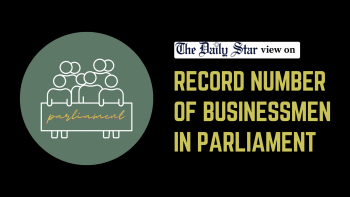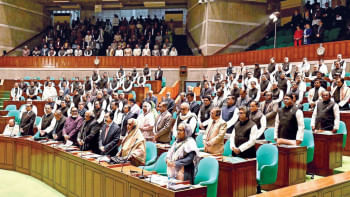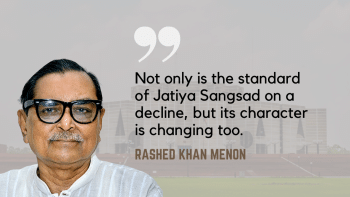Don't institutionalise conflicts of interest

It is perhaps little surprise that in a parliament that has a record number of businesspersons serving as MPs, its standing committees on different ministries would also be crawling with them. The parliament has recently formed 50 standing committees: 39 related to ministries, and 11 on various aspects of parliament. These committees in general will be responsible for ensuring accountability, investigating irregularities, and reviewing legislation. But as an analysis of the affidavits of the MPs has found, multiple members of 20 committees have businesses in sectors that they will oversee, raising fears that they might prioritise personal interests over the committee's objectives.
Moreover, there are 12 committee chairmen who served as ministers and state ministers in the previous term of the government. This, experts say, could impede efforts to address past irregularities within their respective ministries. All this presents a clear ground for conflicts of interest, and seeing it take place on such a scale is alarming indeed.
Some of the notable appointees include former Foreign Minister AK Abdul Momen who chairs the committee on foreign affairs ministry, former Finance Minister AHM Mustafa Kamal who chairs the committee on finance ministry, and former Commerce Minister Tipu Munshi who chairs the committee on commerce ministry while also being a businessman. Besides Tipu Munshi, five other members of the commerce committee also own businesses. Shamim Osman, a member of the committee on labour ministry, owns a garment factory, while another member, SM Al Mamun, is involved in ship-breaking yards. Golam Kibria Tipu, a member of the committee on shipping, has several launches. Nizam Uddin Hazari, a member of the committee on expatriates' welfare ministry, is himself involved in manpower export business.
In choosing such members for the committees, the parliament has not just broken the JS Rules of Procedure—which forbids the appointment of a member if their personal, financial or direct interest is linked with matters that are dealt by the committee—but also all but institutionalised conflicts of interest, undermining the very purpose of parliamentary oversight. We know from experience how this can thwart progress in vital areas of public interest. Although the chief whip has defended the inclusion of said committee members, citing their experience, their potential bias cannot be ignored. His assertion that "anyone can own a business" overlooks the fundamental principle that public office demands a higher standard of ethical conduct and transparency.
Therefore, we urge the parliament to address the inherent credibility crisis of the newly formed committees, and reform them if possible. This is not merely a matter of procedural compliance—it is a moral imperative. Although records of past standing committees do not inspire much confidence, the potential of such committees in upholding good governance, if properly formed and utilised, cannot be overstated.

 For all latest news, follow The Daily Star's Google News channel.
For all latest news, follow The Daily Star's Google News channel. 










Comments